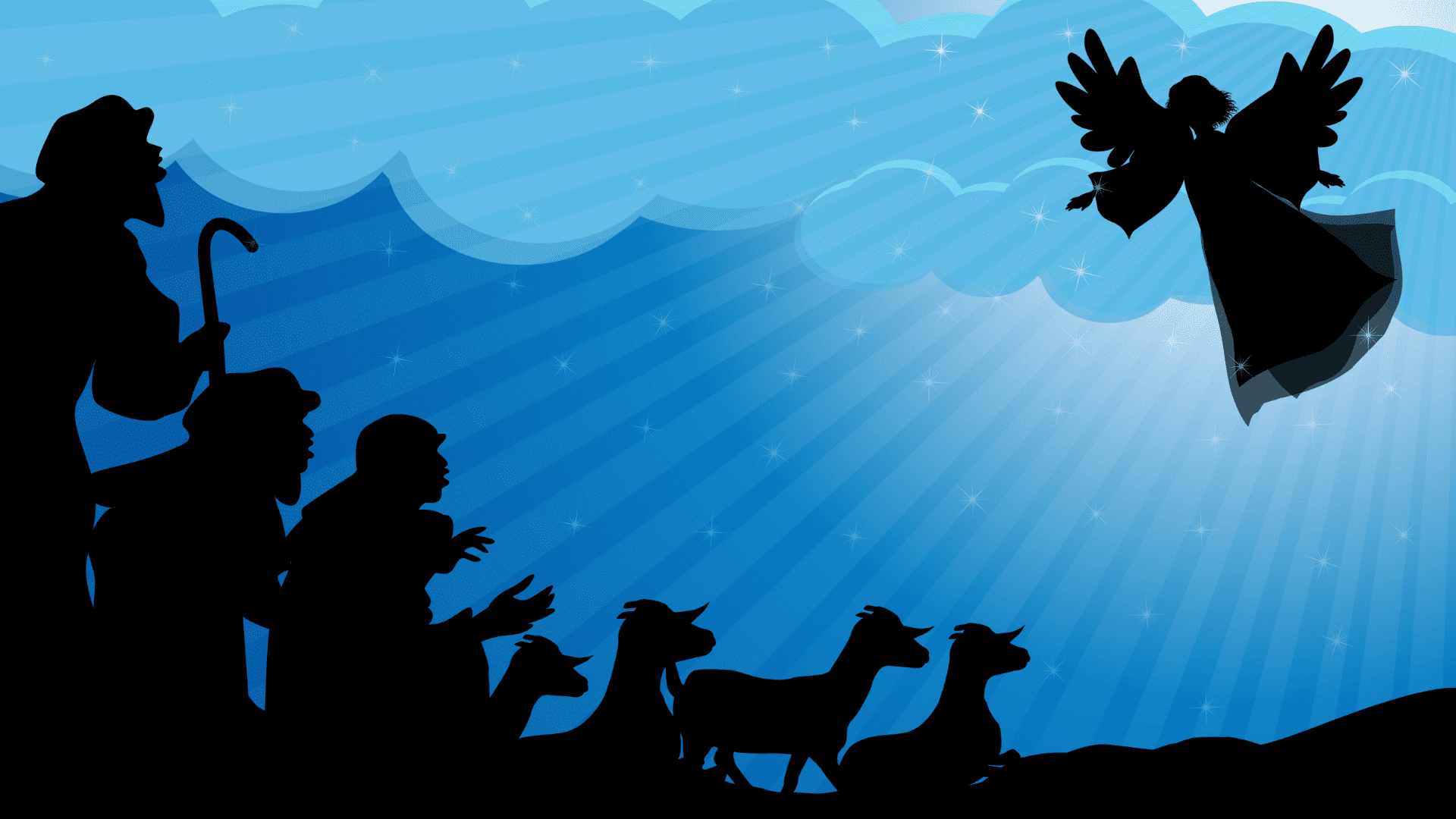We Care: Love (Luke 10:25-37; 1 John 3:11-24)

Vince Lombardi, legendary coach of the Green Bay Packers, took nothing for granted with his players. He began a tradition of starting from scratch, assuming that the players were blank slates who carried over no knowledge from the year before. “Gentlemen,” he said, holding a pigskin in his right hand at the start of one year, “this is a football.” One year, a player responded: “Uh, Coach, could you slow down a little. You’re going too fast for us.”
It’s good to return to the basics. When we run into problems, it’s usually because we’ve forgotten basic facts. I’d like to return to some basic values over the next week as we talk about what really matters to us as a church. You will probably never hear a simpler sermon than today. It’s so simple that I want to teach you only one sentence today, and it won’t even be new information to you. It’s simple, yet it will revolutionize our church and our community if we live this one sentence out.
I want to talk about love today. Do we agree that we would like to be a loving church? Absolutely. This is as basic as it gets. Love is so foundational that you can’t mistake its importance in the Bible. Jesus said, “So now I am giving you a new commandment: Love each other. Just as I have loved you, you should love each other” (John 13:34). When Jesus was asked for the greatest commandments, he said:
You must love the Lord your God with all your heart, all your soul, and all your mind.’ This is the first and greatest commandment. A second is equally important: ‘Love your neighbor as yourself.’ All the other commandments and all the demands of the prophets are based on these two commandments. (Matthew 22:37-40)
We read the passage this morning: “This is his commandment: We must believe in the name of his Son, Jesus Christ, and love one another, just as he commanded us” (1 John 3:23). This is not advanced Christianity. You can’t claim to follow Christ if love doesn’t characterize your life. Jesus said, “Your love for one another will prove to the world that you are my disciples” (John 13:35).
In the early years of the church, the church was known for its love. People couldn’t figure out why these people from all different social situations loved one another. Sometimes it was misunderstood. One of the early charges against Christianity was that incest was involved. You can see why. People went around calling each other brother and sister, and talked about loving one another. No wonder it was sometimes misunderstood.
Today I want to look at what love actually looks like in a church. Love is not the warm feeling that you get when you go to a church. Love is far more than that.
Let me start to give you the sentence I’d like to teach you today.
Love is meeting the need…
That’s what love is: it’s meeting a need. I’ve always thought that the opposite of love is hatred. Biblically, the opposite of love is not hatred. It’s inaction. Love is when you meet someone’s need. The opposite of love is when you fail to meet someone’s need when you could.
Where do I get that? 1 John 3:17 says, “If anyone has enough money to live well, and sees a brother or sister in need and refuses to help-how can God’s love be in that person?” Love is when you see that someone has a need and you do something to meet that need. The opposite of love is when you see that someone has a need and does nothing. The opposite of love isn’t hatred; it’s inaction.
We just read the story about the Good Samaritan. The story came after someone asked Jesus about our obligation to love other people. A guy is lying on the side of the road half dead, and a priest and a temple assistant walk by. We have no idea why they didn’t stop, but they didn’t. The people that you would expect to get it, didn’t. They showed the very opposite of love: inaction. John wrote, “Dear children, let us stop just saying we love each other; let us really show it by our actions” (1 John 3:18).
Let’s add to the sentence a little.
Love is meeting the need of any person…
I’m all for meeting needs. If you’re like me, you’re wondering where this could lead. What needs? Whose? How many people? I’m overwhelmed by the needs that I see around me. There’s no possible way that I can meet everyone’s needs, so I’d really like to know if there are any loopholes.
This isn’t a new question. When Jesus told the story of the Good Samaritan, he told it in response to a question from an expert in the religious law. The expert understood that we’re obligated to love our neighbors. He wanted to know how widely the term neighbor had to be applied. Some taught that only had to love the righteous. That really cuts the list down, doesn’t it? I could disqualify pretty well anyone based on that requirement. It’s a good question though. We can’t meet everyone’s need. Whose needs should we meet?
It’s interesting that Jesus never answers that question. The expert asked, “Who is my neighbor?” Jesus never even tried to answer that question. Instead, he turned the question on its head and asked a different one instead. Speaking of the three characters – the two that ignored the need, and the Samaritan who stopped to help – Jesus asked, “Now which of these three would you say was a neighbor to the man who was attacked by bandits?” (Luke 10:36) Instead of asking, “Who is my neighbor?” Jesus says, “Let the neighbor be you.” Rather than worrying if someone else is a neighbor, you be the neighbor. Don’t assess the other person. You be the kind of person who makes neighbors out of those who aren’t currently your neighbors.
This week, we’ve had the chance to become neighbors to thousands of people in Haiti. We don’t know them; we’ll never meet them. We’ve seen the news this week of the devastation caused by Hurricane Jeanne. We can become the type of person who decides to become a neighbor to someone in Haiti by sending some aid through Red Cross or another agency. We can proactively become neighbors to people we may never meet in this life.
This week, the world rolled over and flattened some people. I know, because I’ve talked to them. This week, more than most, I’ve been in touch with people who are at the end of their resources. There are some people here today who look all together, but are dying for someone to look into their eyes and ask, “How are you?” and really listen for an answer. There are people who are dying for a simple act of kindness. There are others in financial need. They’re here. Jesus taught that we’re not to ask who our neighbor is. Let the neighbor be you. Go out of your way to become the neighbor of people in need. Don’t limit your involvement. Help anyone who is in need.
Love is meeting the need of any person at any time…
Here’s where it gets even scarier. Meet needs, not selectively but with anyone. Don’t just do it when it’s convenient. Become available when it’s not convenient. Love others, not just part time. Love them all the time.
The two religious leaders didn’t help the half-beaten guy. We don’t know why, but I know that I sometimes don’t want to help because it’s simply not convenient. I don’t mind helping 9 to 5, but there are times when it’s not convenient to pitch in and do something to meet someone’s need.
The Samaritan was different. He was on his way somewhere, but he didn’t stop and hire the next person who came along to look after the robbery victim himself. He stopped, he helped. He took a number of specific actions to meet the need of this person. He didn’t just walk away; he even came back later to settle the bill if there were any outstanding charges. He gave what ultimately matters: he gave his time. It’s one of the most extravagant gifts you can give. It’s the very thing you have the least of, and yet one of the things that people need most. It’s the gift of your time.
I’m not saying that you shouldn’t have boundaries. Of course you should have boundaries; Jesus had boundaries. He didn’t meet every need, and he took time away. There are times that we need to get away and recharge, but this should not be a permanent condition. Most of us are so far on the side of keeping good boundaries that we need to be stretched a little. Allow yourself to be interrupted. Love others when it’s not convenient.
You have some people in our life, I bet, to whom you can say, “Call any time day or night if you need to.” They could, too, and you wouldn’t mind. Why? You love them so much that they’re not really an interruption to you. Expand that list. Become a neighbor to more people so that you don’t mind being interrupted sometimes. Love when it’s not convenient.
One of my favorite pastors, Gordon MacDonald, flew into Minneapolis to give a speech at a conference. His taxi was stopped at a red light four cars back from the crosswalk. He noticed a homeless man lurching between the cars in the middle of the street. When he got in front of MacDonald’s taxi, he fell and landed on his chin. You could hear the thud. His chin split open, and there was blood all over the place.
Gordon MacDonald got out of the taxi and looked at the man six feet away, and the following thoughts went through his head:
I have a brand new suit on that Gail just bought me. I can’t afford to get it messed up.
I have to get to the Minneapolis Convention Center to speak in 15 minutes.
I’m in a strange city, and I don’t know what to do.
I don’t have any medical training. I wouldn’t know how to help this guy.
He says, “I wonder if underneath there wasn’t a fifth thought: If you’re dumb enough to get yourself that drunk, why should busy people stop and help you?”
While MacDonald was debating what to do, other people came to this man’s help. MacDonald was able to get back into the taxi and go to the convention center – to speak on sensitivity and caring for the needs of other human beings.
Love is not meeting someone’s need when it’s convenient. Love is meeting the need of any person at any time, even when it isn’t convenient, even when it’s an interruption, even when it costs you your time.
Let’s complete the sentence.
Love is meeting the need of any person at any time at any cost.
I want to make you a promise. If I win twenty million dollars, I am going to give everyone here today $10,000. Not bad, eh? This is being recorded. You might want to order the recording just for this promise.
I’m not afraid at all to make this promise. Why? I’m never going to win twenty million dollars.
It’s easy to make extravagant promises when we probably won’t have to keep them. The standard for love has been set by Jesus Christ. He set it when he died for us. Here’s the standard: “We know what real love is because Christ gave up his life for us. And so we also ought to give up our lives for our Christian brothers and sisters” (1 John 3:16). There’s the standard. I can pretty easily say that I will give up my life for each of you, because chances are I’ll never have to do so. It’s easy to make such sweeping promises when nobody will be able to collect on them. John knew this, so he described what this might look like in ordinary circumstances. The limit: give up your life for your neighbor. What this might look like in ordinary life: “But if anyone has enough money to live well, and sees a brother or sister in need and refuses to help-how can God’s love be in that person?” (1 John 3:17)
That’s what love looks like. It sometimes looks extravagant, with huge gestures of unlimited commitment. It sometimes looks a lot humbler – noticing that someone has a need, and filling it. It means that if you have two of something and someone has none, that maybe you give away your second one to them. It means that their problems are your problems, and that you live sacrificially to share with anyone who comes into your life with a need.
So there it is, one simple sentence, yet if we lived it out it would revolutionize our church and change our community. Love is meeting the need of any person at any time at any cost. That is what we’re called to do as a church.
If all this is overwhelming, then join the club. Nobody can love like this by themselves. We need God to produce this type of love within us. He does and he can. History is full of examples. How do you get this type of love? Just start. Just start meeting needs, any time, any place. Do it when it’s inconvenient.
We can’t meet everyone’s need. We can, though, meet the need in front of us. We can be a part of the puzzle, actively becoming neighbors of the people around us.
One of the ways that we can meet needs is to get involved in ministries that we have going. We have a ministry fair going today after the service. The reason why we keep these ministries going is to love people – to meet needs of people. There are needs that you can meet, together with others, better than anyone else. Take a look as soon as we’re done.
A couple of years ago, I saw the movie Black Hawk Down. 123 elite soldiers were dropped into Somalia. A Black Hawk went down, soldiers were captured or killed. The soldiers had a memo: nobody gets left behind. They kept going back, even for soldiers who were killed. More were then captured or killed. I wanted to scream, stop! Leave the dead soldiers behind.
What if the church lived this way, so that nobody gets left behind? What if we loved so that we were committed to meeting the needs of any person, at any time, at any cost. That’s what it means to love.





